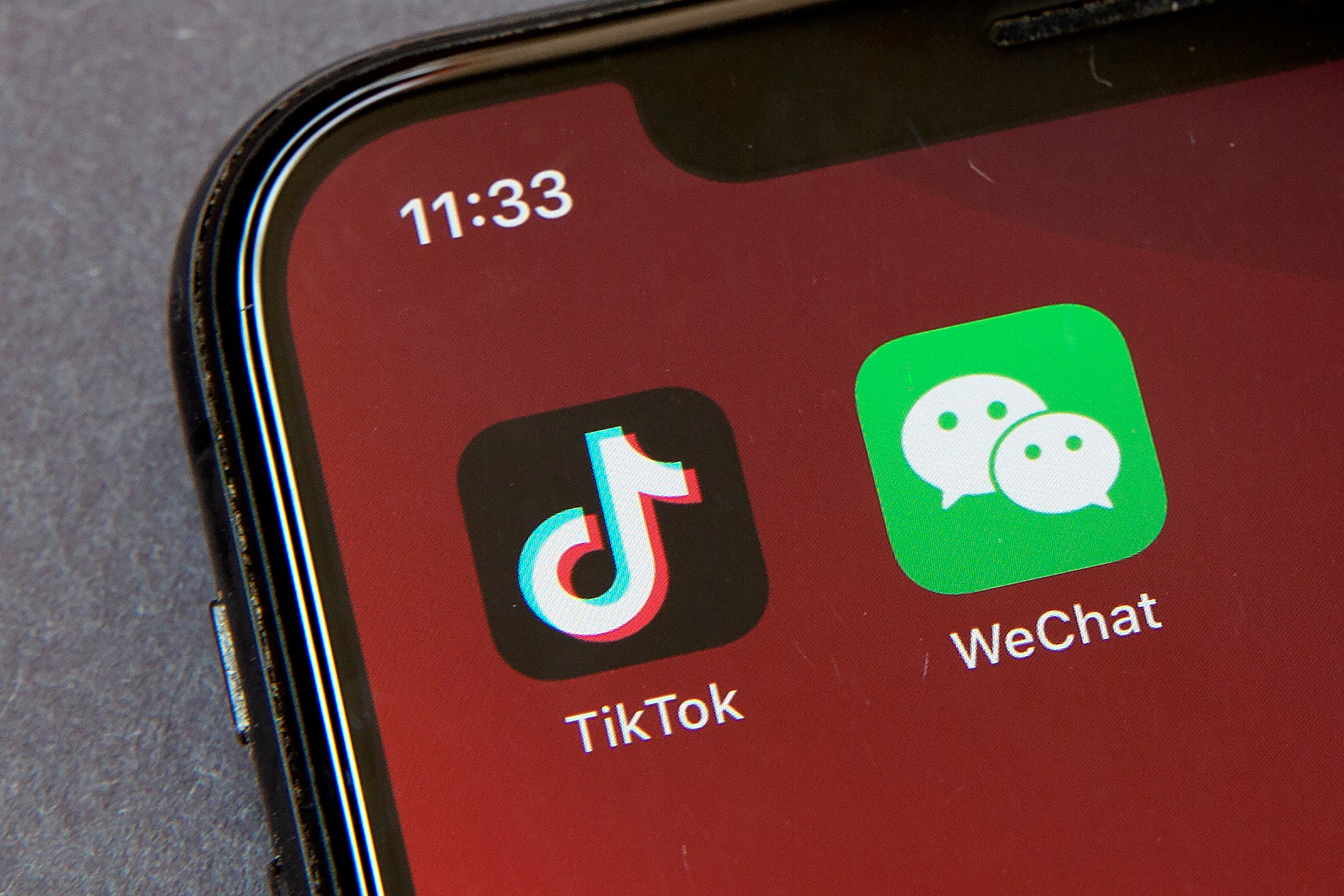Tiktok ban: Everything you need to know
Tiktok and WeChat are banned in the US from Sunday, here’s everything you need to know

The U.S. government is cracking down on the Chinese apps TikTok and WeChat, starting by barring them from app stores on Sunday.
President Donald Trump has cited concerns about Chinese government snooping as his administration prepares to follow through on executive orders that could make it increasingly difficult, if not impossible, for Americans to use the apps.
Trump has also floated a potential way out, at least for TikTok, which on Friday he called an “amazing company” that is “very, very popular.”
Here are some questions and answers about the deal.
When do the TikTok and WeChat bans start?
The order disallowing TikTok and WeChat from smartphone app stores takes effect Sunday, as do additional restrictions on the use of WeChat.
A broader ban on the use of TikTok will follow on Nov. 12 unless its Chinese parent company ByteDance is able to persuade U.S. officials that it can resolve national security concerns, such as with a proposed partnership with American tech company Oracle. On Saturday, Trump said he has approved “in concept” a deal between TikTok, Oracle and WalMart that would create a new company likely based in Texas and under the control of the U.S. companies. But the deal still needs to be finalized.
What are TikTok and WeChat
TikTok is a smartphone app for making and watching short videos that's popular with teens and young adults, with typical posts centered around lip syncing, dancing or making people laugh. TikTok says it has 100 million U.S. users and hundreds of millions globally. It has its own influencer culture, enabling people to make a living by posting videos on the service, and hosts ads from major U.S. companies.
WeChat is a messaging-focused app that in the U.S. serves as a lifeline to friends, family, customers and business contacts in China. Its owner, Chinese tech giant Tencent, says it has more than a billion users, mostly in China, where it's an all-purpose app used for everything from texting to social media, cab-hailing and payments.
What does the TikTok and WeChat ban mean for users?
For WeChat users, the order won't prohibit individual users from sending texts or making payments. But it could throw a wrench into WeChat's operations and make it hard for the app to keeping running in the U.S. by blocking critical technical services provided by other companies.
For TikTok users who've already downloaded the app, it should still work normally for now. Users, however, might be blocked from getting important app software updates that fix bugs and security vulnerabilities. Further restrictions echoing those targeting WeChat are set for Nov. 12.
Can you bypass the TikTok and WeChat ban?
Maybe, though none are very good. It's possible to bypass the TikTok app to view the service on a web home screen, but users wouldn't be able to make videos — which could eventually mean fewer new American-made videos to watch.
App users can try to use virtual private networks, or VPNs, to disguise their location and pretend they're in another country. But that raises additional security concerns, especially for users who go with a free or cheap VPN provider they haven't carefully vetted.
Users can also use tricks to sidestep the Apple and Android app store process, but these also pose security risks.
“If there's a software update, well, WeChat might stop working,” said Nicholas Weaver, a computer science lecturer at UC Berkeley. “If you don’t update your phone, it's a security risk. It puts users in an impossible position.”
What are TikTok and WeChat doing about the ban?
TikTok and some of its employees have sued to stop the ban, saying it's unconstitutional. But the company has remained open to some kind of merger that would resolve U.S. government concerns about spying and censorship, even as it denies that it's a security threat.
TikTok's interim U.S. leader, Vanessa Pappas, publicly sought help from rival Facebook on Friday, responding to a tweet from Adam Mosseri, the head of Facebook-owned Instagram, after he criticized a TikTok ban as bad for everyone.
“This is a moment to put aside our competition and focus on core principles like freedom of expression and due process of law,” Pappas wrote.
A group of WeChat users have also sued to stop the ban. A federal judge in California appeared sympathetic to WeChat users in a hearing Saturday but did not immediately issue a ruling on their request for an injunction against the government. The Justice Department said in a filing in that case that they would not target WeChat users with criminal or civil penalties for using the app for messaging.
Bookmark popover
Removed from bookmarks